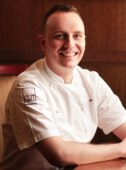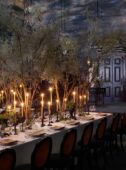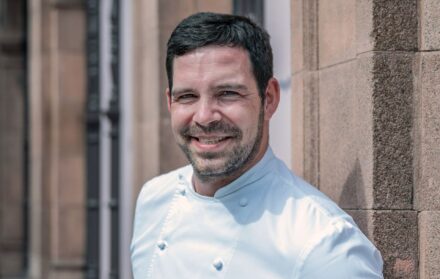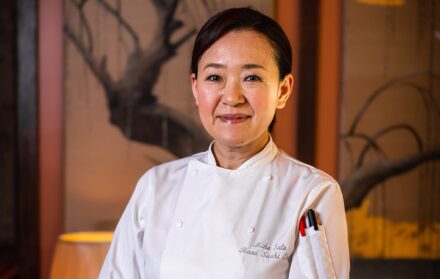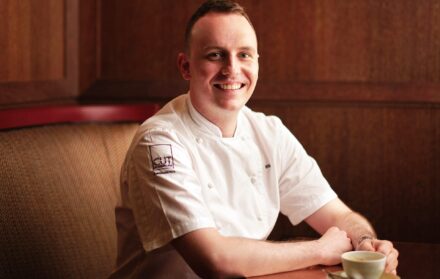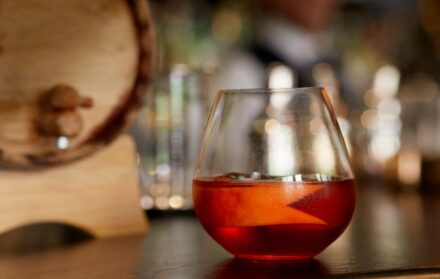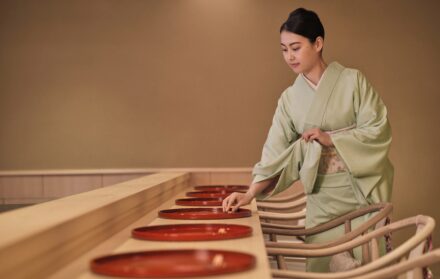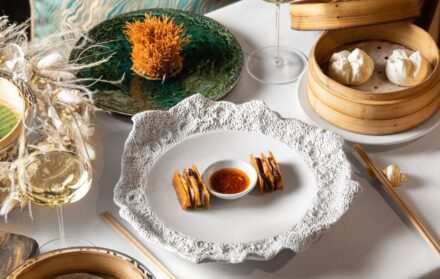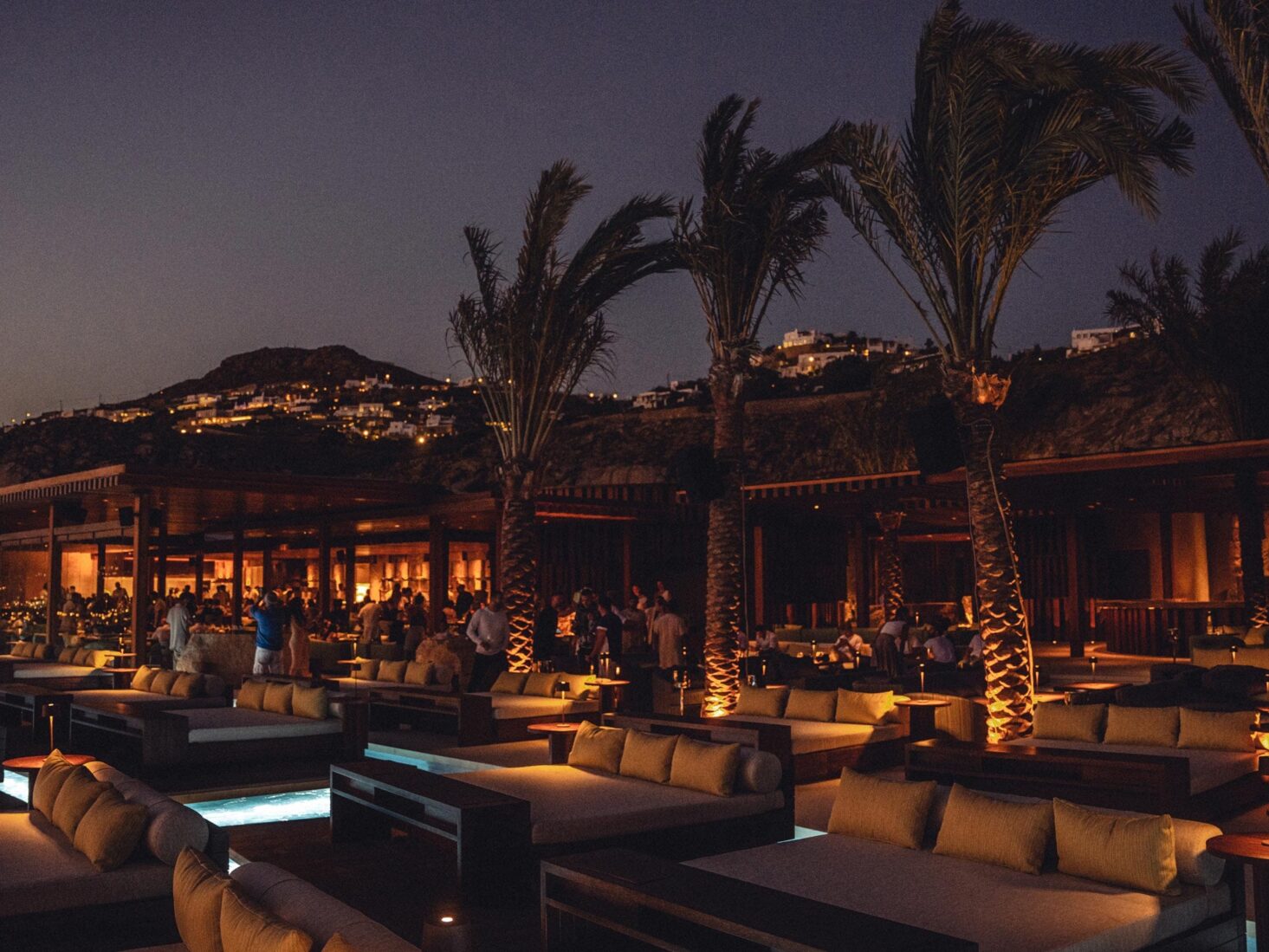
Zuma celebrates 20 years in business with three pop-up restaurants across Europe
“There is such a huge difference between Asian and European cooking”
Rainer Becker is looking particularly svelte and bronzed in his white T-shirt and chinos, as he sits, under the radar, in a corner booth at his famous Zuma London restaurant. He’s just got back from Ibiza, he explains – as we take cover from the sweltering heat in the sacred air conditioning – where Zuma will be hosting one of three pop-ups in Southern Europe. The other two restaurants will launch in Mykonos and Sardinia.
It’s been 20 years since the 61-year-old chef, along with co-founder Arjun Waney, opened the first Zuma restaurant in London, an anniversary that won’t go unmarked this year. And the Japanese izakaya stalwart continues to dominate the restaurant scene two decades on, making it one of the world’s most successful culinary super-brands.
Growing up in Germany, Becker knew he wanted to be a chef from a young age. He was always helping his mother in the kitchen with “the basic stuff” like salad dressings and remembers fondly her speciality roast chicken – “I could never resist pinching a bit of crispy skin”.
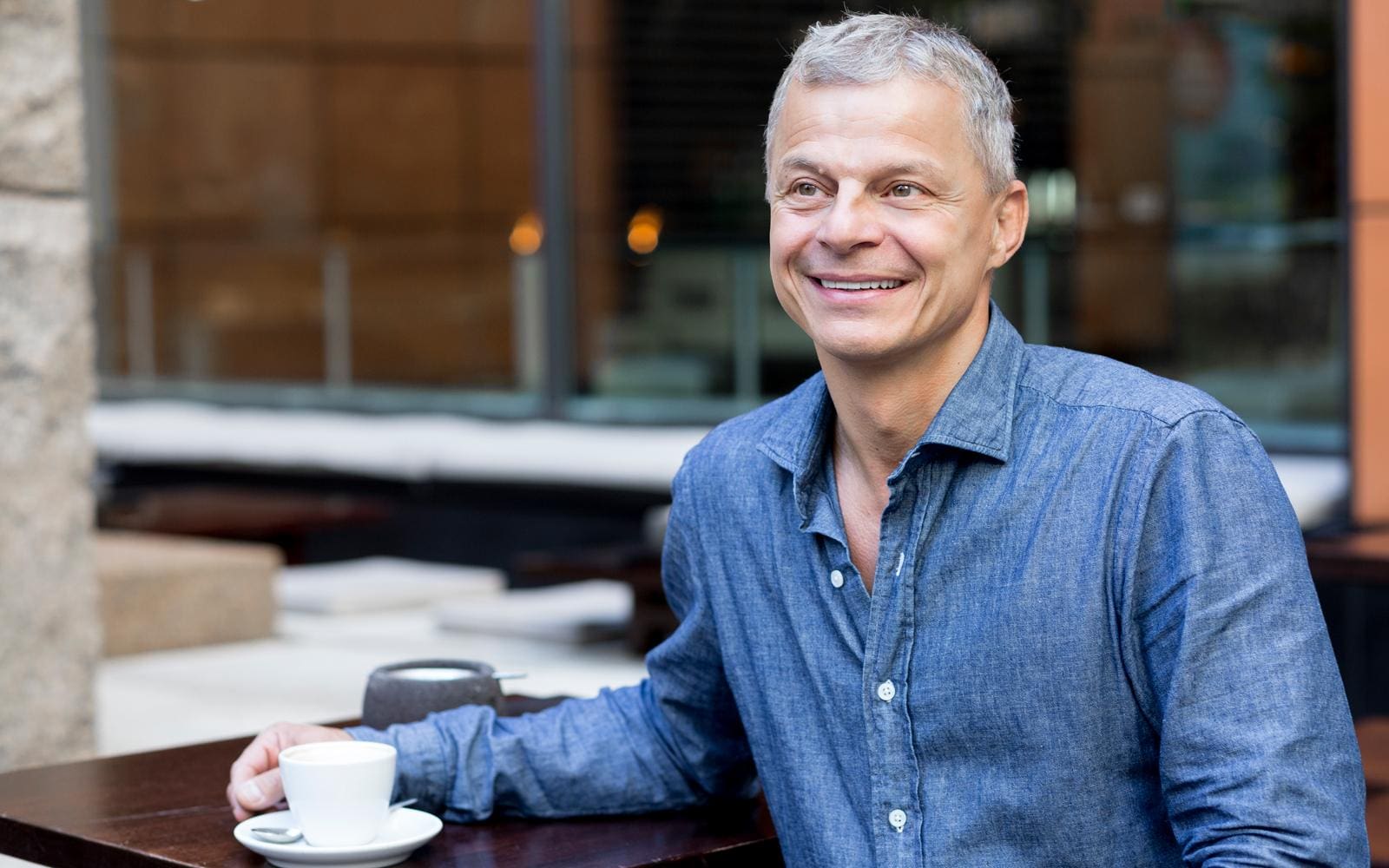
It was the pleasure Becker took in such simple delights that made him sure he wanted to be a chef, despite his parents’ initial reservations at the unsociable hours and relentless work. They sent him to work at a friend’s restaurant one summer, hoping the hard graft would put him off. Instead, it just cemented what he had long-since felt: that this was the job for him.
“I really got a kick out of it. I was only making down-to-earth, simple things like sausages and steak tartare, but after that my father saw how much I wanted it, and he was very supportive.”
The food of Becker’s youth – traditional German cuisine, such as sauerkraut and sausages – was a far cry from the authentic (yet far from traditional) Japanese izakaya dishes that would come to define his later career: crispy chicken wings (Becker’s favourite), wagyu beef tataki with truffle, and black cod.
Life as a young chef took him all over the world, from Munich to Cologne, Australia to Japan, where he mastered and then made his mark on the Hyatt hotel group’s multiple dining destinations. He learnt early on about Asian cooking, and the intricacies and idiosyncrasies of such a vastly different gastronomic playing field, as well as the difference in “pub cultures”, the basis for the izakaya concept in atmosphere, if not in the technicalities.
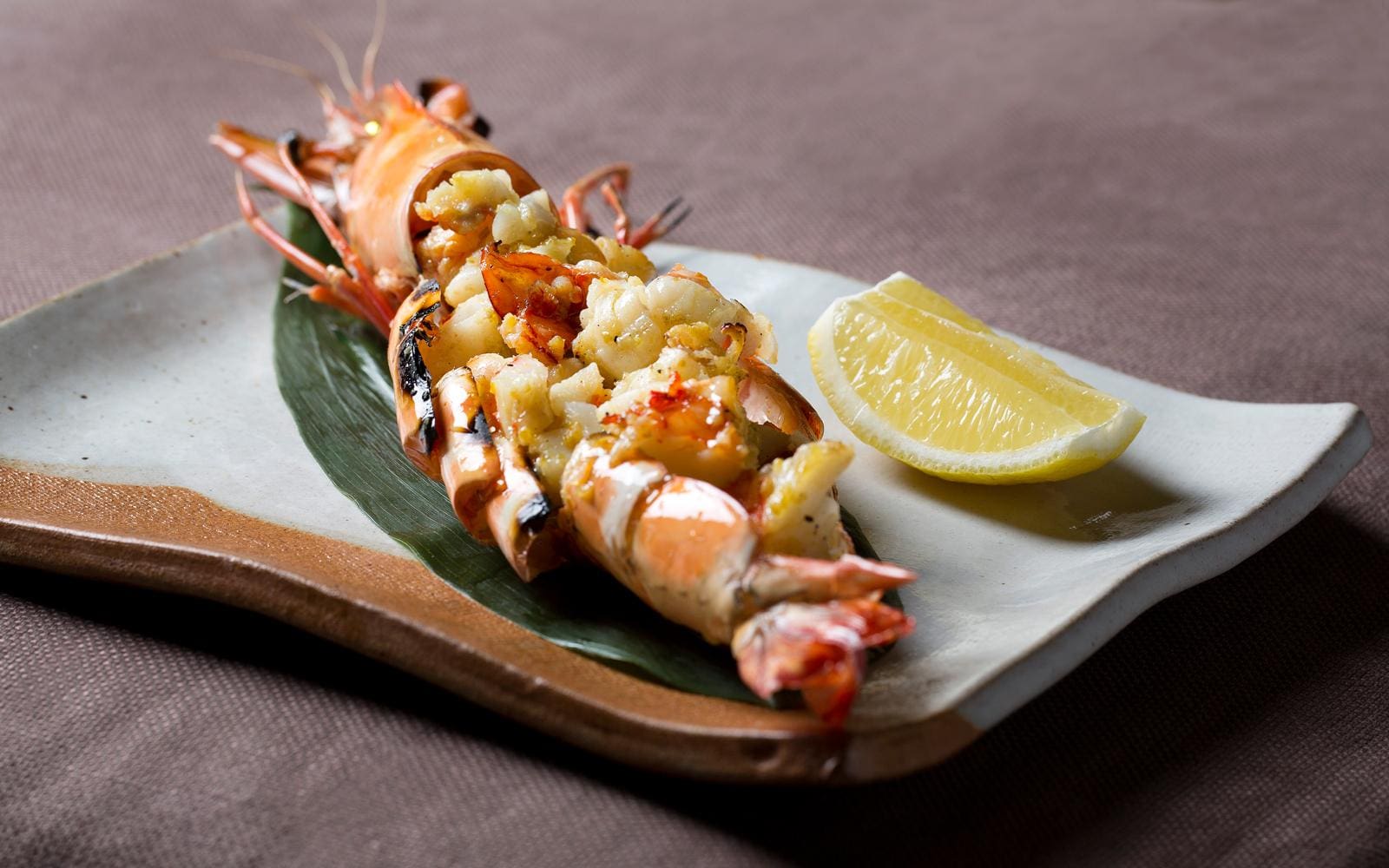
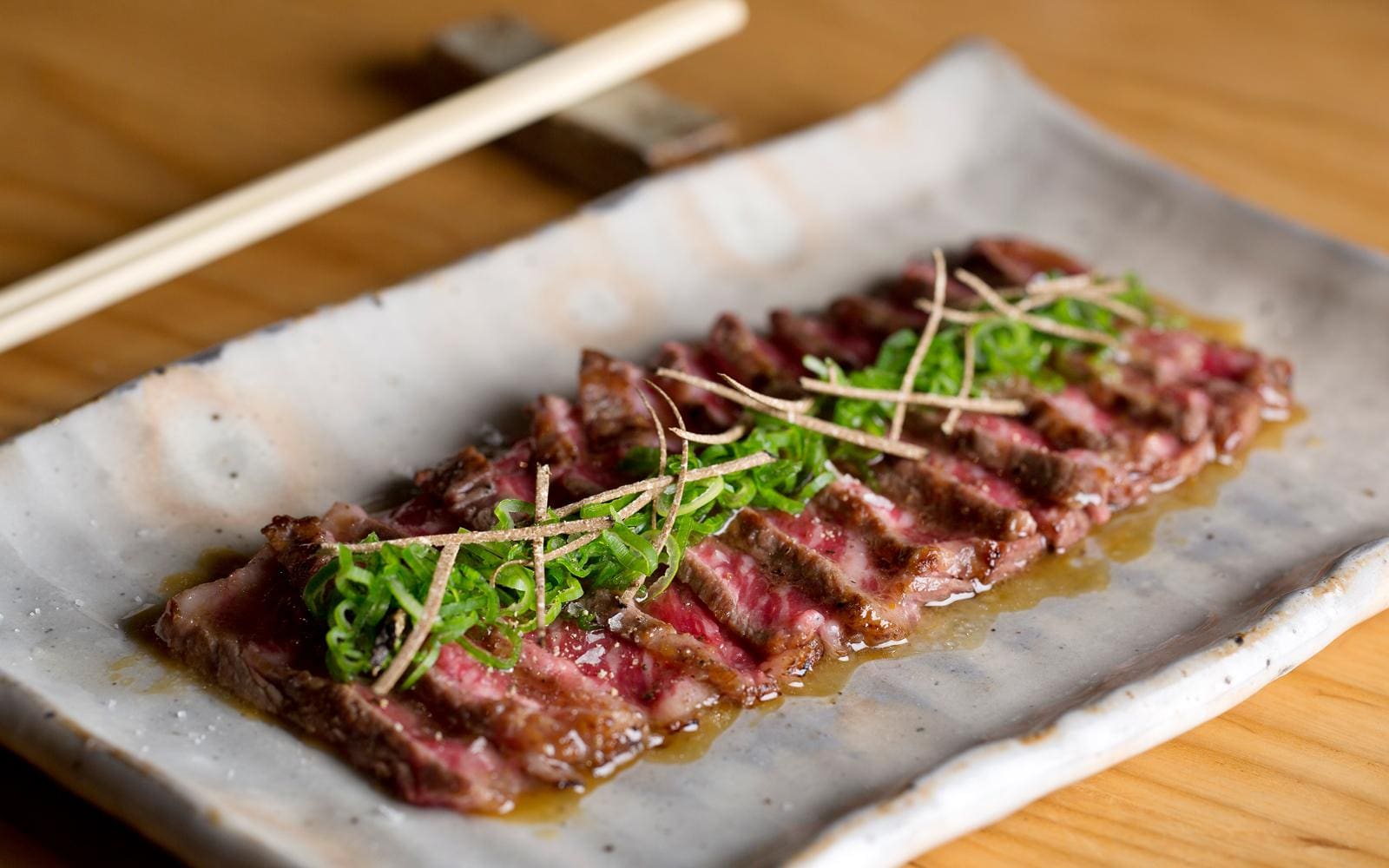
Becker especially loved his time in Singapore learning the basics, which he then tried to marry with what he had learned in Europe. “There is such a huge difference between Asian and European cooking. I could have never ‘learned’ Asian cooking in a matter of months, I was just exposed to it – and I mainly only learned about Asian spicing. You need six or seven years just to master the wok.”
After spending time windsurfing in Sydney while running the Hyatt kitchen there, he learnt a lot about the local BBQ tradition, before moving onto Tokyo with the hotel group – both of which were the “experiences of a lifetime”. He was inspired by the fish markets and was blown away by the culture and variety of food on offer in Japan. He stayed for over seven years, whereby he spent the first two trying to earn the respect of his colleagues.
“I found the first two years extremely difficult. It is a very different culture, and you must respect it. They already have fantastic chefs, so they certainly don’t need some foreigner coming in and telling them what to do. I needed to stand my ground and prove myself. But once I gained their respect, they never let me down.”
It was always Becker’s dream to operate his own restaurant –“isn’t it everyone’s?” – but it wasn’t until the late 1980s / early 90s, and the opening of Nobu and Terrence Conran’s slew of star-studded haunts such as Quaglino’s, famed for the faces they attracted as much as the food they served, that he really saw an opportunity to do something big. “London was suddenly becoming known as a foodie destination like it never had done before. It was becoming the culinary centre of Europe.”
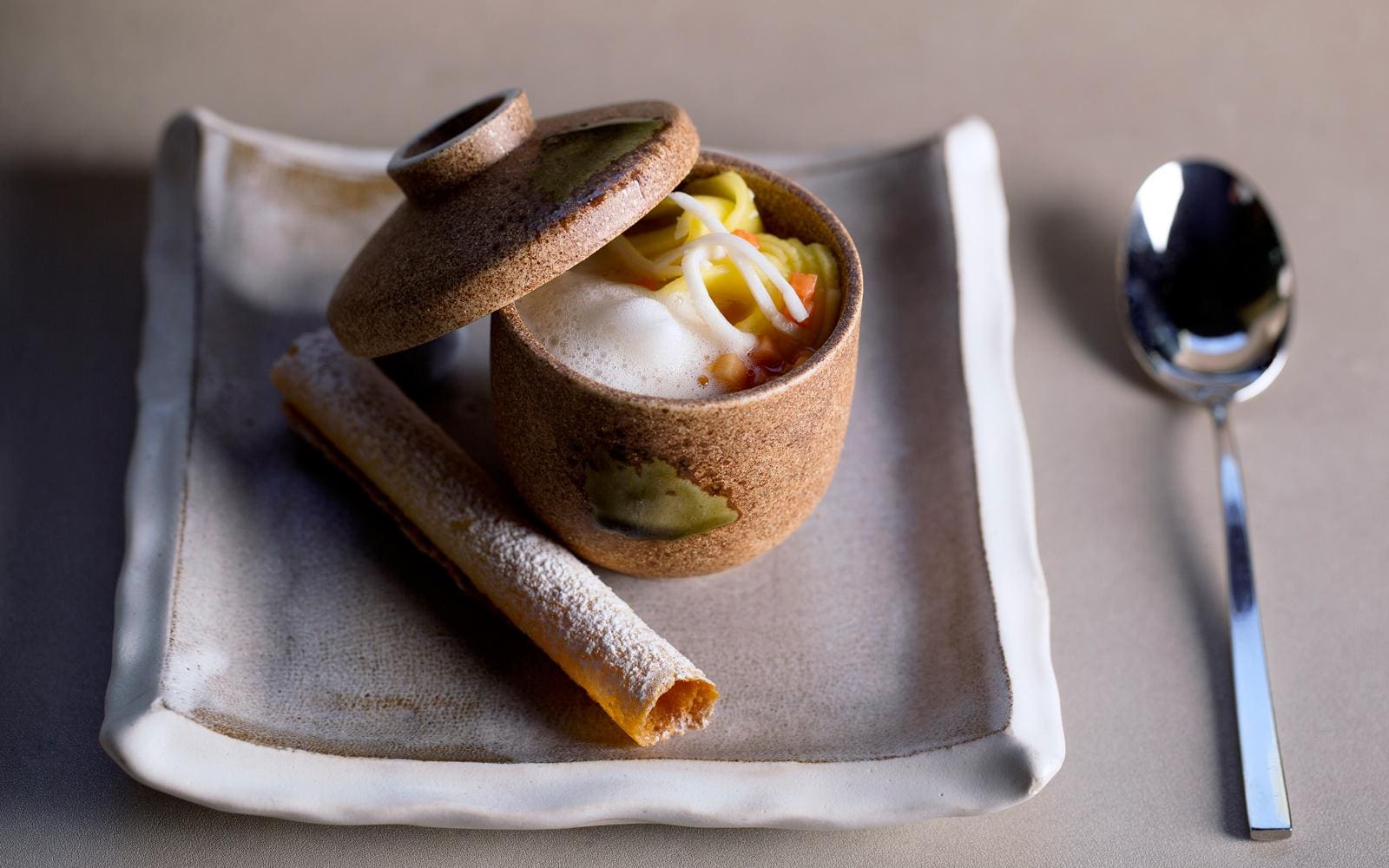
Twenty years later, there’s no doubt that Zuma (as well as Becker’s other robata-based mammoth, ROKA, plus OBLIX, ETARU and INKO NITO) is still integral to London’s culinary pulse; the sophisticated izakaya concept, the beautiful design, the endless hero dishes. And it is still the benchmark for copycats, at every level, trying to master the winning Zuma formula.
So, how did Becker, and his generation of chefs, change the restaurant scene in London forever? “We opened people’s mindsets. We inspired young chefs to do something different. But if I had known that every new lifestyle restaurant over the next 20 years would have a robata grill, I would have patented it!”
Life for Becker isn’t all jetting off between the Maldives (where he will be spending some time with his family this summer, overseeing a seasonal opening). Largely, he travels to check in on his teams – in places as varied as Boston and Bangkok, and Las Vegas and Dubai. His chefs are largely untrained, instead being initiated the Zuma way, and Becker is keen to ensure the yuzu-to-soy sauce ratios that smatter the yellowtail sashimi are just so; that the calamari is crisped to perfection; that the warm, chargrilled, melt-in-the-middle eggplant tastes like caramel. Seventy per cent of the menu is the same all over the world, but Becker also gives his head chefs the chance to earn “their footprint” alongside his on the epicurean map, if it fits the concept and tastes good.
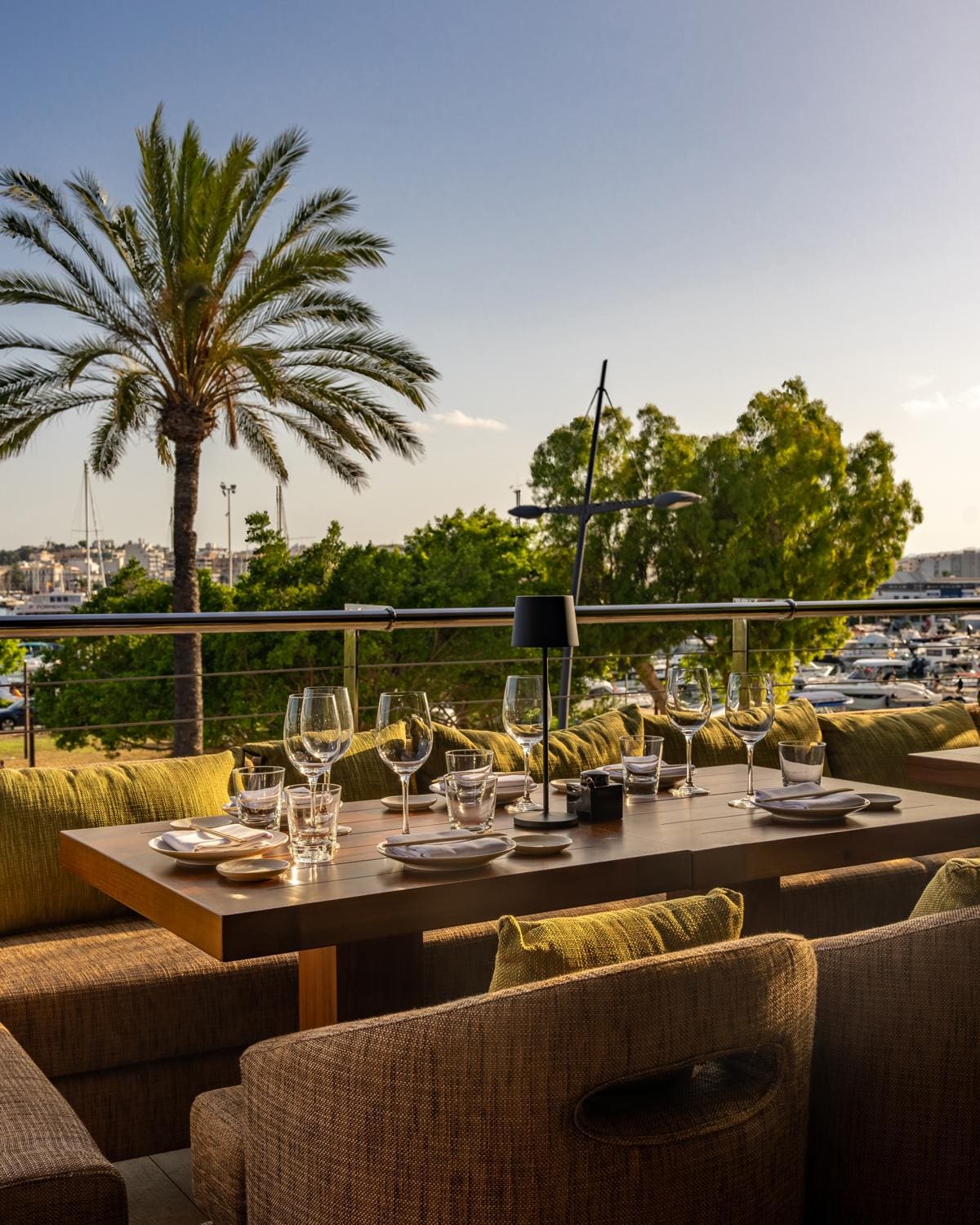 | 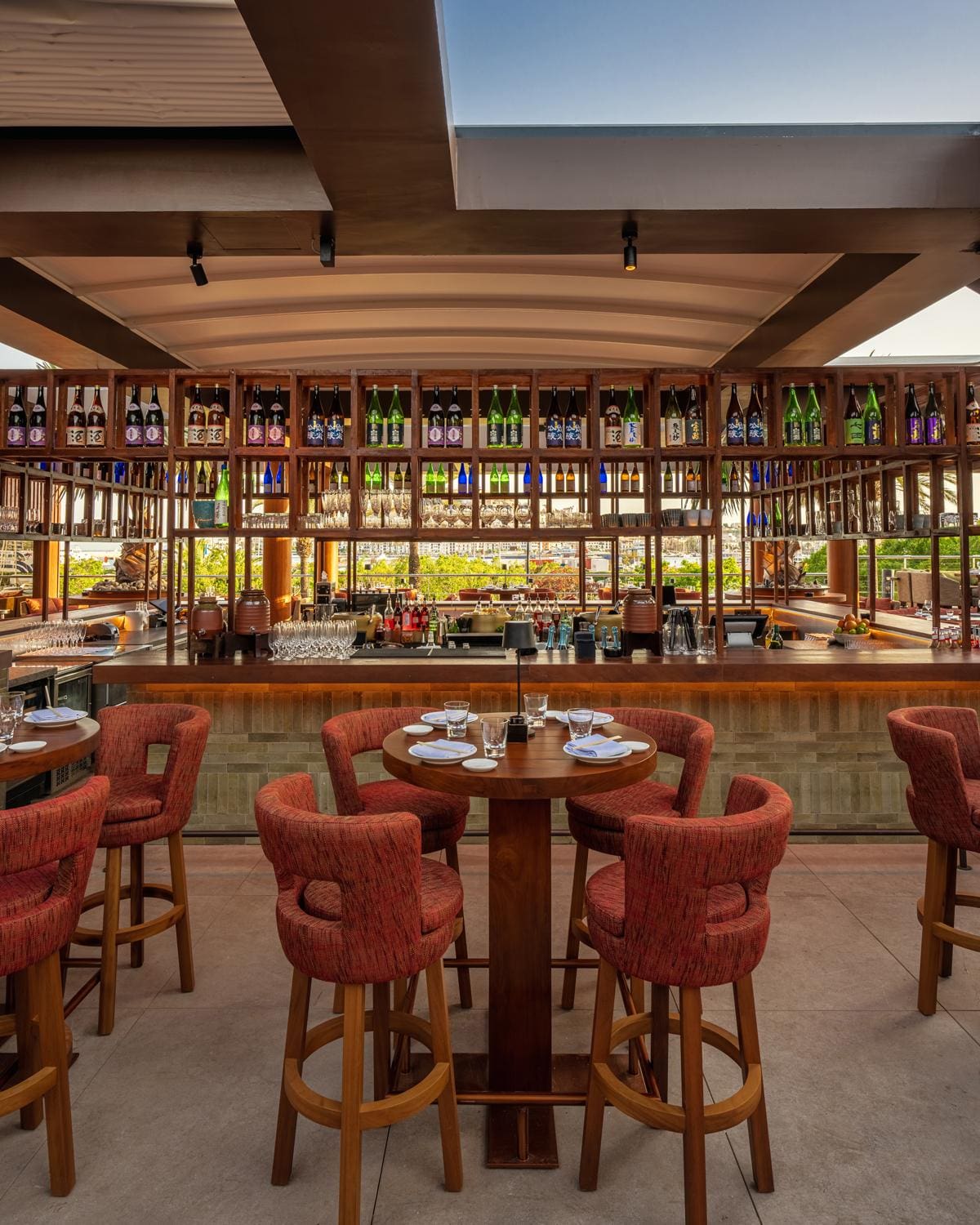 |
Zuma Ibiza, from where Becker has just returned, sits upon the idyllic rooftop of the Ibiza Gran Hotel, located in the buzzy marina. The setting is inspired by the elements of earth, fire, air and water, with the sushi bar and open kitchen located in the centre of the space, and the blues of the marina and Med serving as their backdrop: every bit the setting for Balearic bliss. The drinks-only space becomes a lively bar at night, with its own resident DJ.
Costa Smeralda, Sardinia, is playing host to Zuma Porto Cervo, located on the rooftop of the Cervo Tennis Club with views across the marina and the signature blue-green coastline. “Italy has long been a focus for Zuma in Europe. This summer, we are building on the success of our restaurant in Rome with the opening of Zuma Porto Cervo. Costa Smeralda shares our values of quality, respect and vision, and we feel is an ideal destination for our new seasonal Zuma location,” says Becker. Upon arrival, guests will enter the lower floor, welcomed by a large lounge and bar area, as well as a resident DJ in the evenings.
Mykonos marks the first creative, multi-purpose Zuma space, and earmarks a new direction for the brand over the next 20 years. And it really is something to be seen. Already a hotspot this summer, with a restaurant, lounge and bar, sleek infinity pool, day beds and resident DJ, the sound of house beats plays on as guests enjoy mouthfuls of thinly-sliced seabass with yuzu, truffle and salmon roe; roasted lobster with green chilli and garlic shiso butter; and spicy beef tenderloin with sesame, red chilli and sweet soy.
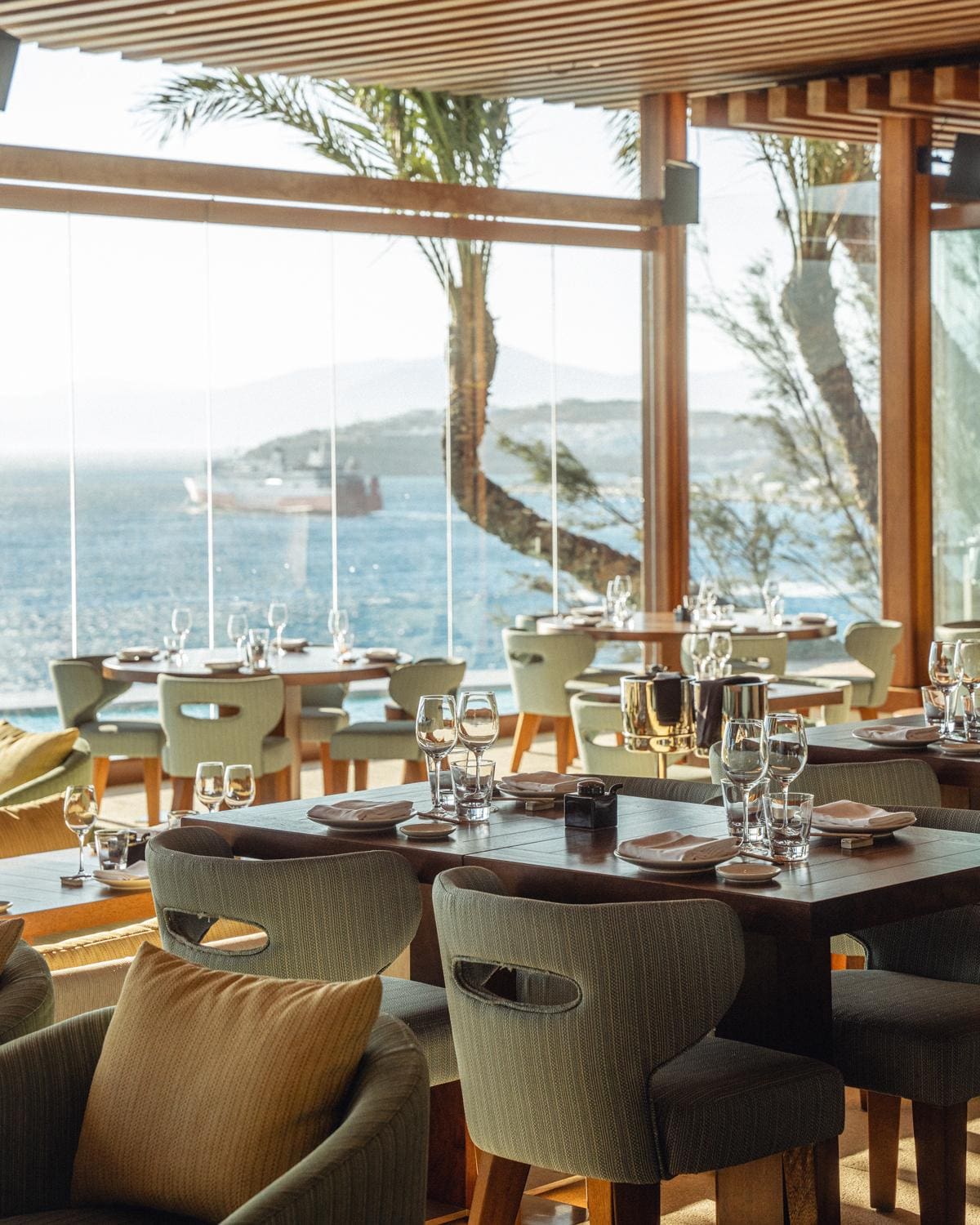 | 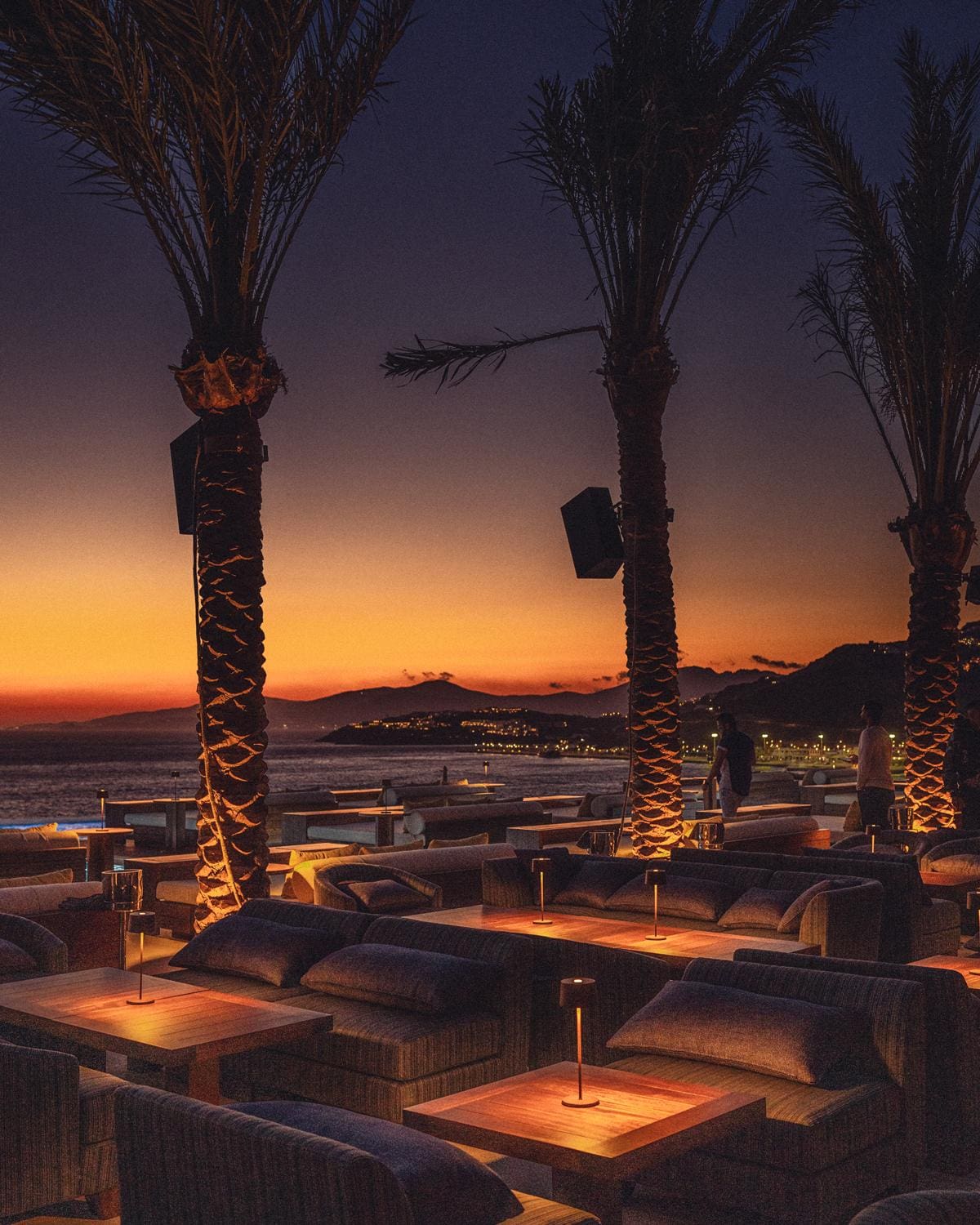 |
Set between classical Mykonian, white-washed villas and the Aegean Sea, it has been designed to complement the local landscape, with Greek granite throughout, plus natural granite boulders and a perimeter wall made in the traditional Mykonos stacking-stone design. Palm trees cast shadows over the restaurant pergolas of varying heights, and around the DJ area. For the long, balmy summer nights, the space transforms into a more traditional restaurant. While the pool closes in the evenings, both the restaurant and lounge will offer the full restaurant menu, and the sunbeds remain open for lounging on.
But even with all the new outposts – from the busiest cities to the most idyllic coastlines – London remains one of Becker’s favourite ventures. And its opening is still a career defining moment. He still feels that immense pride every time he walks into a newbie and is hit by the scale of what he’s achieved. “My heart will always be in the kitchen,” he muses, as I ask who he sees himself as now – chef, businessman, or something in between. The answer is a global restaurateur who is still in charge of getting the schweinshaxe (pork knuckle) in the oven when cooking for his family or stocking up on sausages for a summer BBQ at his home in Barnes.
I ask what he thinks the next biggest food trends may be, with Asian and fusion cuisine having dominated the market for most of my adult life. “If I knew, I wouldn’t tell you!” he cackles. “I’d be opening the next big restaurant!” And I believe him. Something tells me he just can’t resist the rush.
Zuma Ibiza, Ibiza Gran Hotel; Zuma Mykonos, 84600; and Zuma Porto Cervo, Via Porto Vecchio 4, Porto Cervo are all open now, zumarestaurant.com
Read more: In conversation with pioneering French chef, Anne-Sophie Pic
